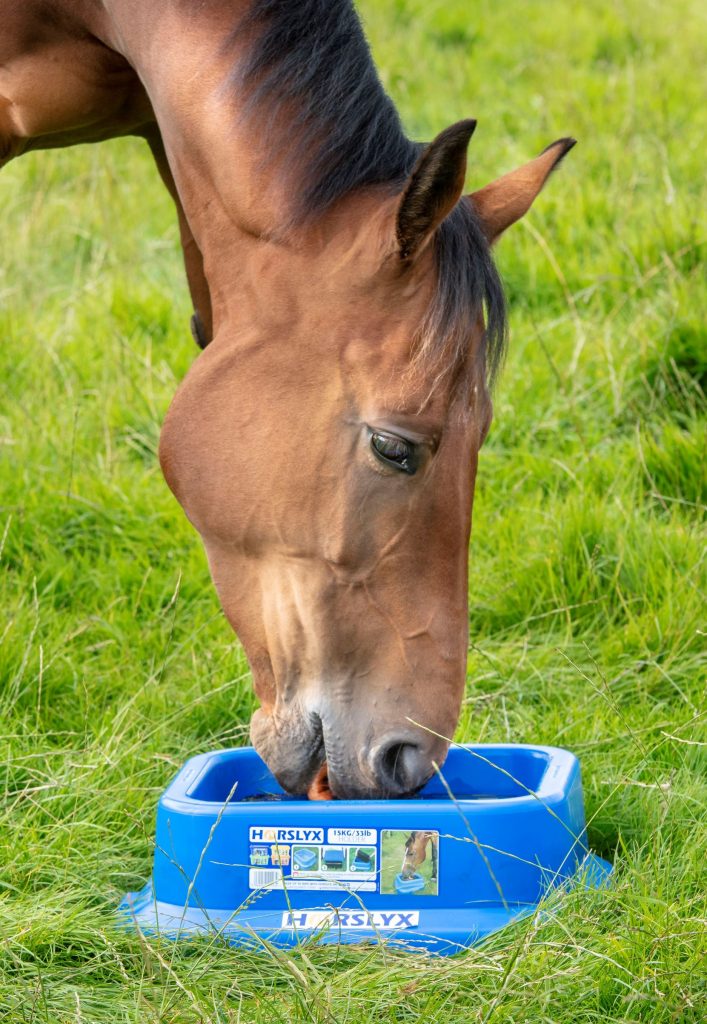
Why Feed a forage based diet?
Horses have evolved to spend much of their day eating so why feed a forage based diet? In the wild, they would have had free access to a wide variety of vegetation and forage, eating little and often, whilst travelling many miles in one day. Today’s equine is managed in a very different way to their ancestors, with limited grazing and space, however the digestive system is still designed to work in the same ‘little and often’ routine, with a high fibre diet being the optimum nutrition source to keep your horse healthy and satisfied.
So how much should a horse be eating? Well to maintain weight and condition for an animal at rest or in light work then they should consume approximately 2% of their bodyweight in food, for a 500kg animal this equates to 10kg (DM), and the majority of this should be from forage. As forage does not contain the balanced vitamin, mineral and trace element profile that the equine requires then it is likely you will need to balance these nutrient deficiencies in the diet by feeding either a balancer, in the form of a lick or pelleted feed, a supplement or the full ration of a mix or cube, however this would still be part of the 2% of total bodyweight that the horse needs to eat in a day. If you have a horse that you struggle to put weight onto, or is working at a high level, then you would up the total intake of feed to 2.5% with a larger proportion of this being provided from higher energy products such as high calorie mixes, cubes and super fibres such as alfalfa and sugar beet, however it is important that they should never be fed less forage than 1% of their bodyweight. If you have the opposite problem and have an equine who is prone to weight gain and you struggle to keep their weight down, then reducing their total intake to 1.5% of their bodyweight is advisable and using low calorie fibres to keep their intake of feed little and often over the day so that the need to trickle feed is still satisfied.
Feeding a high fibre diet is not a new concept, however it is surprising how many horses do not have access to a sufficient quantity of forage, and what fibre they do consume can often be lacking in vital vitamins, minerals and trace elements. These deficiencies can affect horses in different ways, from poor condition and inefficient digestion, to behavioural issues and a general lack of health and wellbeing.
So in essence, forage should be the basis of every horse’s diet. Vitamins, minerals and trace elements should be added to balance the deficiencies often found in grass, hay and haylage. If it is then necessary to add extra calories, e.g. for improving condition, or increasing energy levels, this can be done with super fibres such as alfalfa and sugar beet, or cereal based feeds.
